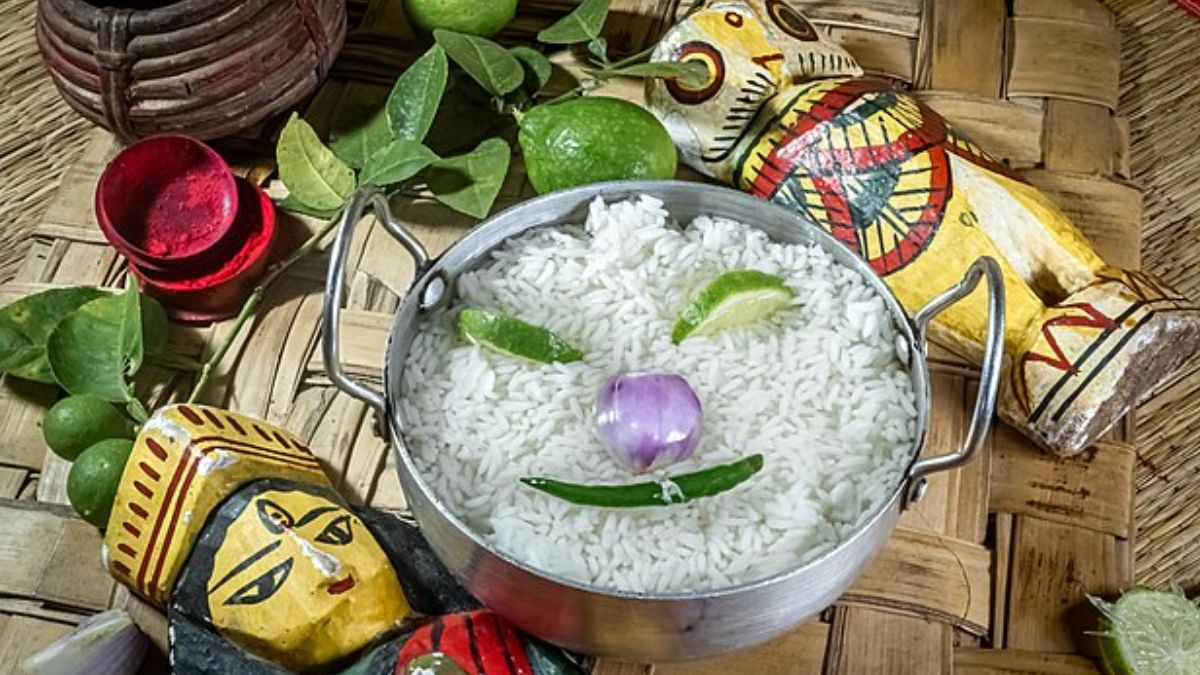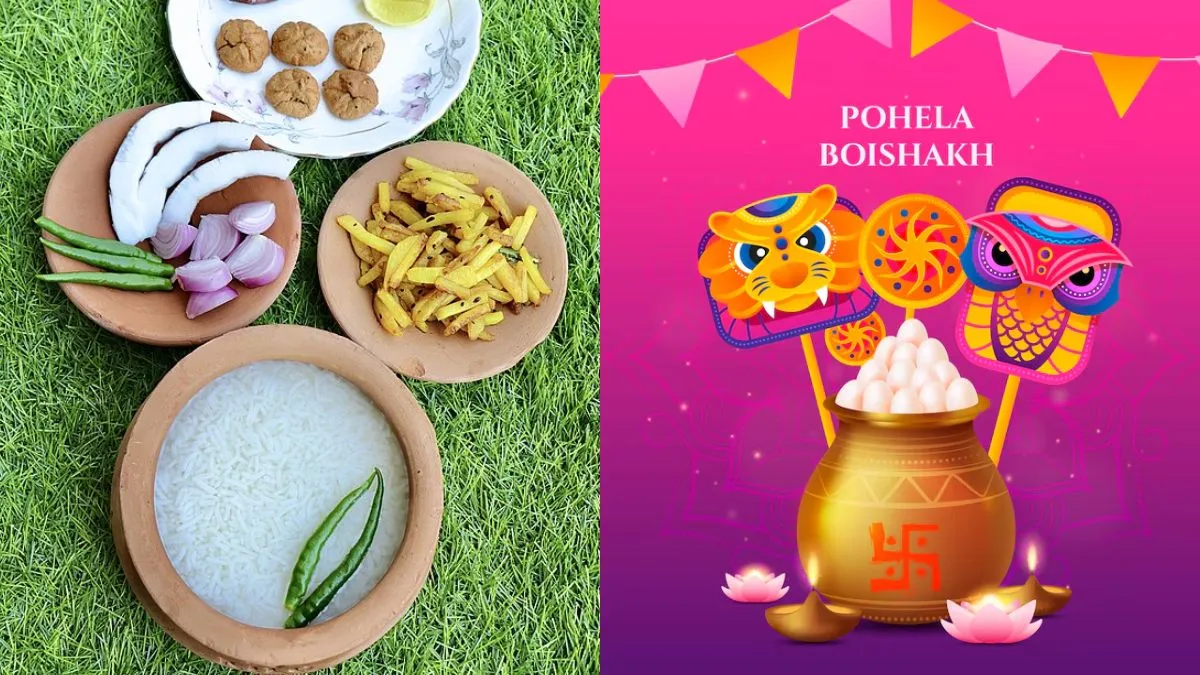- By Kashish Rai
- Tue, 15 Apr 2025 10:40 AM (IST)
- Source:JND
Poila Baisakh 2025: Bengali New Year is being observec by the natives of the Bengali community on 15th April 2025. Bengalis warmly greet each other with the phrase Shubho Nabo Borsho on this day. The Bengali New Year marks the first day of the month of Baisakh or Vaishakh and is celebrated with great enthusiasm in West Bengal, Tripura and Bangladesh. Individuals enjoy scrumptious feasts and wear traditional attire on this day. Festive fairs and vibrant processions are also organised as part of celebrations in some areas.
Bengali businessmen traditionally celebrate Pohela Boishakh by settling accounts of last year and opening a new ledger, popularly known as 'Haal Khata' for the upcoming year. A small puja is organised on this day to mark this significant ritual. Although ledgers may seem outdated, many Bengali businessmen still prefer to start their financial year on this day.
Another significant tradition associated with Pohela Boishakh or Poila Baisakh is the consumption of Panta Bhaat or cooked rice soaked in water! Panta Bhaat, also known as Poita Bhaat in Assam is a popular comfort food in East India. Made from leftover rice soaked in water overnight, this simple dish is traditionally served with salt, onion, chillies and boiled mashed potatoes. Panta Bhat is often paired with the Hilsa fish.
Check out the spiritual significance behind the tradition of consuming Panta Bhaat on Poila Baisakh by the members of the Bengali community below:

Panta Bhat is a traditional Bengali Dish consumed on Poila Baisakh or Pohela Boishakh. The preparation of this dish is simple which involves cooked rice soaked overnight in water. This dish is served with fish, aalu bhorta and fried chillies. (Image Source: Wikimedia Commons)
Poila Baisakh 2025: Why Bengalis Consume Panta Bhat Or Cooked Rice Soaked In Water On Bengali New Year?
Rice holds a deep significance in Bengali households as it is believed to be associated with Goddess Lakshmi, the Goddess of wealth and fortune. Additionally, rice is a staple in many pujas and wasting even a single grain is considered a sin as per the traditional beliefs. This reverence for rice by the Bengali community is reflected in traditional dishes like Panta Bhat, which has been a part of Bengali cuisine for centuries. It is considered highly auspicious to consume Panta Bhaat or rice on the first day of Bengali New Year, as it symbolises good fortune and abundance in the upcoming year.
Dating back to history, Panta Bhat was traditionally consumed by people across all communities. A 17th-century Portuguese traveller enumerated that everyone would eat Panta Bhat and Shaak, with those who could afford it adding ghee, sweetmeats and fish to their meals. This simplicity and emphasis on rice highlight its cultural significance. Panta Bhat's popularity is a testament to its importance in Bengali cuisine and tradition. It is a simple yet filling dish that brings people together and evokes a sense of shared heritage.
